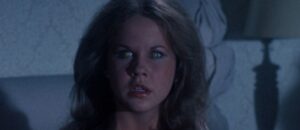There’s no argument that Hollywood is on the decline in theater attendance and home entertainment sales. Numbers don’t lie. But what everyone is speculating about is the “Why?” behind this gradual drop, and how to fix it. Why aren’t people going out to see movies as often as they had in the past, and why aren’t they purchasing hard copies of those movies as much as they used to? Recently, The Wrap asked six experts to chime in on the possible reasons for Hollywood’s dropping numbers and their thoughts on where the medium is headed. Some explanations and theories make perfect sense, while others are worthy of argument.
Producer Mike Medavoy believes that the decline is a combination of three things: the hurting world economy, technology and the quality of the films that Hollywood has been pumping out. Medavoy says, “In the past, new technology like television, videotape, DVD, and cable have saved the film industry.” He asks the question, “What’s next?,” which another expert will answer shortly.
The cost of marketing and producing … and the need for outside partners for high risk and cost films which lowers your upside, makes all the choices of pictures to make more difficult. The decision to rely on remakes and sequels at higher costs either makes people feel that they have seen a movie and can either wait and see it on the after-market or miss it all together.
I don’t think that anyone would argue that there aren’t too many franchises out there.
Film critic Joe Morgenstern believes that Hollywood is in a downward spiral of dismal spectacle. He cites the current lackluster box office performance of eye-popping effects-filled films like ‘The Adventures of Tintin’ and ‘Hugo’, versus the ginormous return of this summer’s effects-less comedy ‘Bridesmaids’. While I enjoyed both ‘Tintin’ and ‘Hugo’, I understand his argument. It’s valid. Like him, I believe that 2011 was the year where smaller and independent flicks reigned supreme. Movies like ‘Midnight in Paris’, ‘Drive’ and ‘The Artist’ were all smaller releases that earned big-time buzz from both cinephiles and general audiences. But where Morgenstern and I differ is in the worry for the future of indie films. His concern is that they’ll become extinct like newspapers, but I don’t think they’re going anywhere – not with film festival circuits still going strong.
Wall Street expert and analyst Harold Vogel looks at the decline from the viewpoint of a businessman. He claims that this is not a cyclical event, but the beginning of a new digital and online era. The internet is here to stay, so we all better change our business plans accordingly. Vogel offers the answer to Medavoy’s rhetorical question about what’s next:
The DVD lived for about eight or ten years and was magnificent while it lasted, but it was an interim technology. But the longterm technology is all digital distribution on the web – streaming or downloading or whatever.
When I think of the future of home entertainment technology, I think of Netflix and other steaming services and products. But to think that theater chains will disappear and that all viewing of new content will take place in the home is absurd. Hollywood is a double-dip business – you pay once to see a movie on the big screen, and you pay again to own it at home. Ending theatrical exhibition would kill profits. And with hacking and piracy so easily available, how would this not further the problem?
The studios feel vulnerable [to piracy], but the film industry lucked out too. Their product requires five gigabytes or more of data to be downloaded and it doesn’t happen that fast on the current Internet, but that will change. Slow speeds gave the business a couple of years to figure things out. It’s been a buffer.
Incorrect, sir. I know a few people who download everything – and I mean everything. They participate in online groups that notify them whenever a new movie, television series or album has been pirated. One acquaintance in particular had a copy of ‘Drive’ on his PS3 before the studio even held a local press screening. How much worse would this be if all distribution was web-based?
Vogel insists that one source of the decline has been Hollywood’s post-Writer’s Strike attempt to recoup profits from the box office lull:
Studios went to these bets of $100 million-plus [movies]. That seemed to do well for awhile, but if you look at the margins of the industry for basically the last forty or fifty years, we have not broken out of this eight to ten percent pre-tax margin range. Margins have been basically flat and are probably headed down. There is no great cure for this. There are some problems in life for which there’s no cure. The studios are going to be around, but their ability to generate high margins and sustained margins is being challenged all the time.
Hopefully, this means that the studios will return to making creative and original films worthy of viewing, not just formulaic franchise films.
‘Warrior’ director Gavin O’Connor looks at the gloomy future through more optimistic eyes. He knows that technology is changing the landscape of cinema in a new and unpredictable fashion, and believes that Hollywood needs to be prepared to roll with the punches and adapt. He is currently putting this into practice by directing a film on a $100,000 budget.
It’s about being entrepreneurial and creating content that I care about and that I think people will respond to. You can’t wait around for studios to send you scripts anymore. You have to write movies outside the studio system, take them around and maybe you have someone attached to it before you find the right home.
On the other hand, analyst and author Edward Jay Epstein believes that the independent film industry will be hurt the most:
The main challenge to the film industry is the death of video stores. It’s not a threat to movies like ‘Spider-Man’, but to a movie like ‘Tinker Tailor Soldier Spy’. It’s the kind of small movie where people have to find out about it by going into the store and speaking to a clerk. It might not get into a Redbox or a Walmart. Their disappearance is a major challenge for smaller and more diverse productions.
Producer David Hoberman has the most optimistic view of the problem. He believes that 2011 was simply a dry spell in Hollywood.
This year there wasn’t the big launch of some new franchise or a big new piece of business that gets people excited about the movies. It felt like people were not compelled to go to the theaters. … I think that there were good movies out there … but they didn’t drive people to the marketplace.
Out of all of the ideas expressed in the article, I truly hope that Hoberman’s is right – both this theory about this simply being a stagnant period in Hollywood’s history, and also his belief in what will come next.
I teach at UCLA and I do a teaching fellowship of Suffolk University in Boston, and over the last few years, the films I’ve seen from my students are amazing. The energy and inventiveness of what some of these kids are doing makes me think there’s going to be a whole new wave in live action and animation. There’s so much fermenting at the university level that I think there’s going to be tons of opportunities, as these kids from this last generation are growing up. They’re going to be the Steve Jobs of the world, figuring out new ways of creating things.
Here’s to hoping in Hoberman’s belief, what I’m calling the “New New Renaissance.”
[Source: The Wrap]






Ken Cheshire
As far as I’m concerned, I get much better picture from my home theater system than any movie theater in town. Until they improve the image quality in the theaters, I’ll just wait for the movie to come out on Blu-ray and enjoy it better at home. And 3D isn’t a deal breaker. I think it’s just a fad that ultimately won’t last. Seeing a movie in the theater isn’t an “experience” any longer. Especially at ticket prices these days.
August Lehe
THEN I think about impossible to find (in pristine quality) works of art like Disney’s Song of the South and I wonder if anyobody really knows what their talking about. The crooks have had 67 years! I know, it’s only one film with limited profit margin.
Reed Adams
I hope it’s a lull myself. With two little ones I haven’t been able to enjoy movies as much as I used to (time / money / babysitting), but they grow fast and I certainly hope there is something left when I come out on the other side.
JM
Culture excess in the 17-35 demographic is creating a renter’s lifestyle.
You’re young, in the age of information, with adolescent disposable income. You live to consume. Books, comics, games, tv, movies, internet. And the amount of new content is increasing yearly, faster than the old is decaying.
How do you maximize consumption on a limited budget? Sample, share, rent.
Could you live for one year watching only pre-2010 entertainments?
Hollywood will evolve their investments of talent and treasure into two niche products. Mega and midsize blockbusters, and indie films. Scripted painterly cinema-art, that can’t be had in any other medium.
Darwinian specialization is also infecting tv, games, and literature.
And soon enough we’ll have extra competition from pharmaceutical dreams, holodecks, and AI-assisted personal world construction.
Tim Tringle
These studios are still holding on tight to old outdated methods of distribution. They think that cable is the only thing out there and punish something like Netflix for being a success. If they had half a brain, which obviously they do not, they would partner with Netflix and relize that internet distribution is the future. It’s smaller right now but look at what happened to the music industry. Once upon a time it took a while to download an entire album too, now it takes under 3 minutes.
If they don’t wise up they will find their outlets of distribution having more money than they do and then they won’t have a choice.
JM
Vudu, Amazon, Xbox, iTunes, PSN, Google, Hulu, Netflix.
If Hollywood gave Netflix every movie ever made, blu-ray quality 1080p, the day they hit theaters, how much would Netflix have to charge per month for unlimited streaming?
Shannon Nutt
Most people stay home not due to the quality of the films (there has always been a huge percentage of “bad” movies over the years…we just remember the good stuff, so it doesn’t seem that way), but due to the awful theater experience being provided (primarily) by the “big chain” theaters like Cinemark, Carmike, AMC, and others.
Movies are improperly lit, sound systems don’t function properly, and there’s no longer any patroling of unruly patrons (when I was a kid, an usher would kick you right out of a movie if you were disruptive…today, ushers don’t even come in and check on things during the film). Is it any wonder why people have turned to VOD and streaming in their own homes?
Thulsadoom
I agree with Shannon to some extent. I’m tired of seeing things at the cinema with noisy people, or mobile phones lighting up, etc… It’s getting to the point where the ‘experience’ isn’t so much of a factor in making you want to see a film at the cinema.
It’s boiling down to “Do I want to see this now, or can I wait till rental release?” Because the other factors, such as size/quality/experience are all becoming equal or better at home.
As for movies in general… I sometimes wonder if we’re reaching that point where so many movies exist, of so many stories, that people are feeling saturated. That it’s difficult for anything to be ‘new’ enough to get them enthusiastic? How many ‘weird quirky’ Indie films have we seen? How many big effects-crammed blockbusters? How many epic war films or romantic comedies? Even television seems to be having trouble doing anything original at the moment. Even the better stuff is simply new versions of what we’ve seen before, just with higher modern production values.
Movies Hate You Too
I for one don’t have too much trouble finding a good theater to watch a movie in. I’ve had some less than perfect experiences with digital (which is inexcusable) but for the most part digital has improved my movie going experience. Unfortunately, digital taking over has meant that when I do see a film presented on 35MM it’s usually a bad experience where the bulb is very poorly aligned. I worked in the theater industry for many years and it takes some dedication to keep 35MM presentation looking great and that dedication is no longer evident.
In regard to people’s concerns over dropping attendance numbers I think it has less to do with the quality of the product than the price to value ratio. Simply put I don’t think people feel as though they’re getting as much of a value as they used to. In today’s tight economy a lot of people would rather stay home than drop $30+ just for tickets to a movie.
For someone like me (a DINK, Duel Income, No Kids) I don’t have a problem spending money for tickets and concessions especially considering how many press screenings I attend. What I do have a problem with is the audience. A cell phone lighting up is the bane of my existence. I’m dumbfounded by how many people think it’s ok to answer a phone call or carry one a text conversation while other people try to enjoy the show. I’ve also grown tired of the constant conversations, people arriving 30 minutes late, people trying to put their feet on the seat next to where my head is resting, etc. As someone mentioned earlier, ushers are now mostly pointless as their only responsibilities are to clean the theaters (which is pretty laughable these days), rip tickets (they mostly mumble), and clean the bathrooms (again, laughable). It wasn’t that long ago that ushers helped control the crowd, now the inmates run the asylum.
I think slumping ticket sales have less to do with crappy movies than it does horrible patrons. Why go spend so much money at a theater filled with assholes when you can wait 60 days, buy the film, and watch it your nice home theater?
Jon
I can only speak for my experience in why I don’t go to theaters much. First off, I live in a small town that’s 45 minutes from any major theater. Second, I know the place is going to be crawling with teenagers. Third, I’ve been so spoiled by my home theater that 99% of theater going experiences can’t match up. Sure, the screen is big, but the sound sucks, the patrons are annoying as hell, and it’s even more expensive once I tack on gas costs. It doesn’t help that most ‘films’ released these days are pushing on the wrong side of terrible.